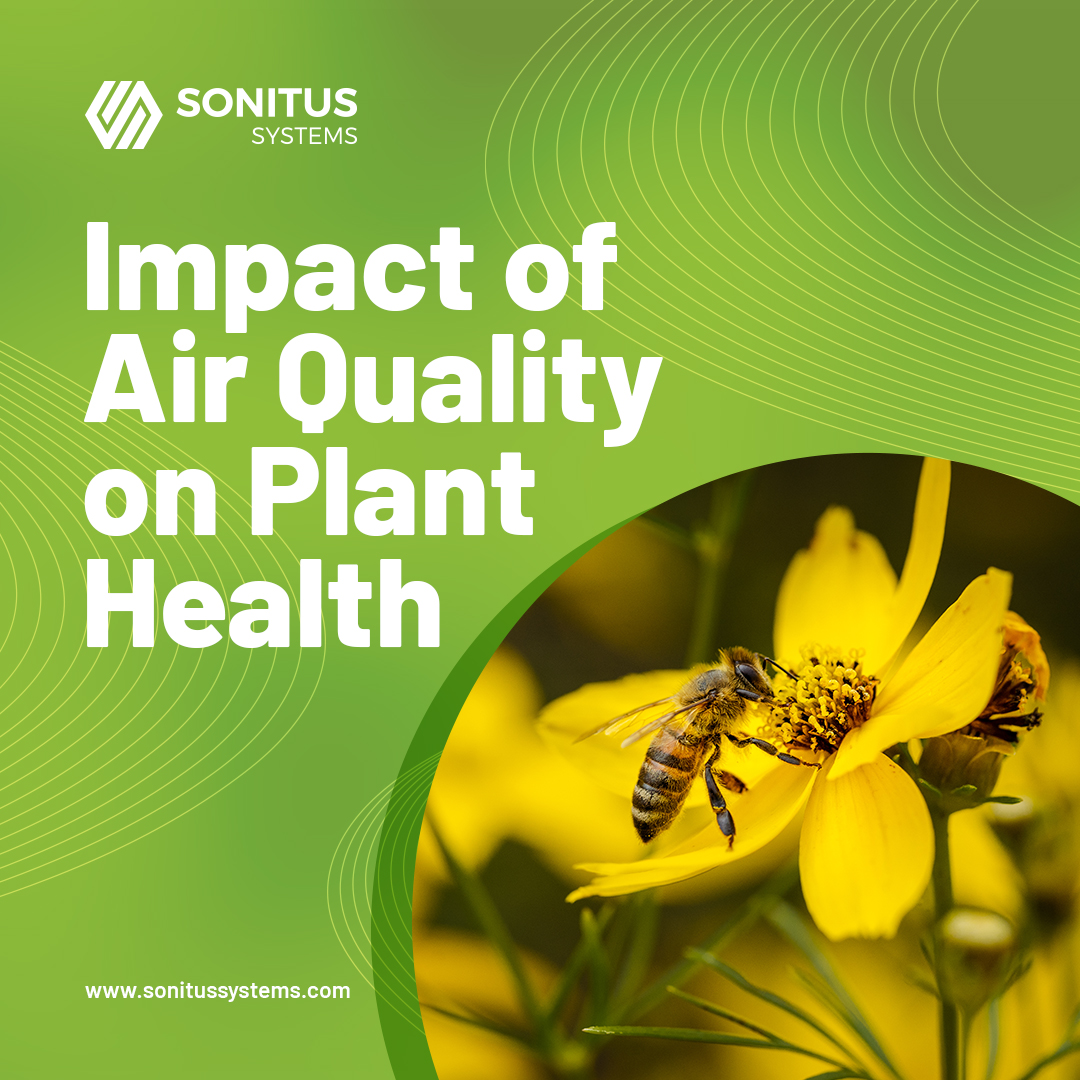Over the past few years, the Sonitus Systems team has written extensively about the impact of air pollution and poor air quality on human health and on animals. This week on Air Quality News, Martin Guttridge-Hewitt has written an interesting article about the impact of ozone pollution on plant health, and on pollinator plants in particular. You can read the article in full here: https://airqualitynews.com/2022/10/13/ozone-pollution-is-damaging-plant-health-obstructing-pollinators/
The main thrust of the article is that increasing ozone pollution is making it more difficult for insects to find flowers, which has a damaging impact on pollination and on plant life in general. Guttridge-Hewitt explains the role that pollinators such as bees perform for the global ecosystem, “without them biodiversity and the food chain would collapse”. This compounds the problem of decreasing numbers of insect species, which has been linked to rising temperatures, agricultural practices and other environmental factors. In simple terms, there are fewer insects in existence to pollinate plants, and those that exist are being impeded in the pollination process, unable to see and sniff out the crops and wildflowers that depend on them.
How?
The above article refers to research previously published in Trends in Ecology and Evolution , which made the connection between rising levels of ozone pollution and a change to flowering patterns. This research distinguishes between ozone that forms naturally in the stratosphere, 7.5 miles above sea level, and that which forms in the troposphere, the lowest region of the atmosphere and closer to Earth’s surface. While the former protects the planet from harmful radiation from the sun, the latter “acts as a harmful pollutant”, which is damaging to the earth and to all life on the planet.
According to the report author, ozone pollution can affect the timing and duration of flowering in such a way the occurrence of flowering is “asynchronous to the activities of pollinators”. Also, this pollution can change the color of flowers, disrupting the visual signals to pollinators. Ozone pollution can also directly react with pollen, decreasing its quality, but also indirectly changing the amount of pollen.
The review’s lead author, Professor Evgenios Agathokleous of Nanjing University of Information Science and Technology in China, said: “There is much noise about the direct effects of agrochemicals on pollinators, a subject of profound societal attention. But it now emerges that ozone is a silent threat to pollinators and thus pollination. These impacts of ozone have long been missed.”
Reporting on this latest research, Newsweek went further to say that ozone pollution levels have been increasing as a direct result of the warming climate, which is creating optimal conditions for it to thrive.
About Sonitus Systems: Founded in 2007 to help engineering teams automate environmental monitoring tasks, Sonitus Systems offers both the hardware and software for a range of environmental parameters. The company has since grown to be one of the leading global suppliers of construction and industrial monitoring instrumentation in the market. Through an expanding network of global distributors, Sonitus Systems’ innovative products are currently in use on over 4,000 construction, heavy industry and smart cities projects across the world, providing real-time information through the Sonitus Cloud dashboard. Please contact the team at Sonitus Systems.
